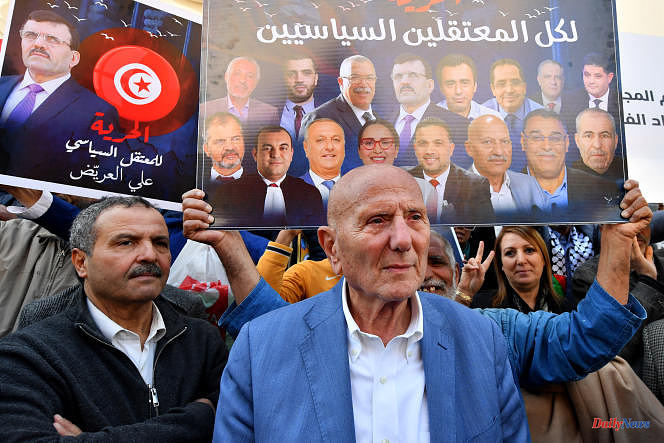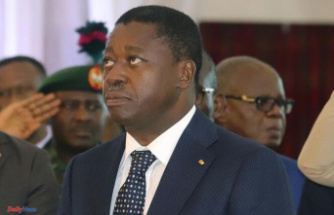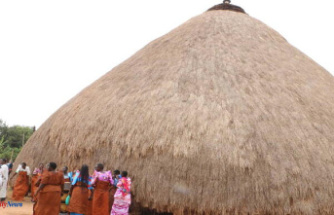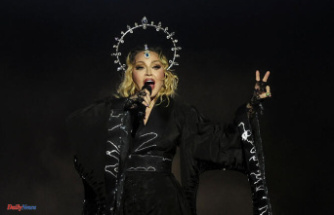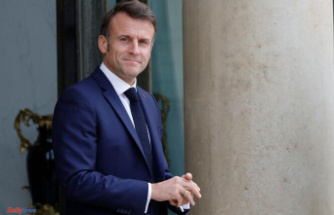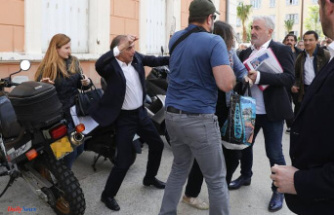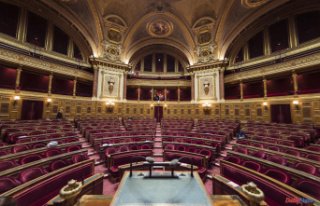Three months after the first wave of arrests in the "conspiracy" case against the state in Tunisia, it is the turn of several lawyers to find themselves in turmoil. Ayachi Hammami, human rights activist, Ahmed Néjib Chebbi, president of the National Salvation Front (FSN, the main opposition coalition to President Kaïs Saïed), Noureddine Bhiri, former minister of the Islamist-inspired party Ennahda (already imprisoned in a another case), and Bochra Belhaj Hmida, former president of the Tunisian Association of Democratic Women (ATFD), were informed on Wednesday, May 3, of the opening of an investigation against them. Three other of their colleagues have been imprisoned since February for the same reasons. These charges prevent them from defending their clients, prosecuted in the same case.
According to Ayachi Hammami, Kaïs Saïed tries to control justice by all means. After the judges, 57 of whom were dismissed in June 2022, "many lawyers are now targeted", he laments, calling on the National Bar Association of Tunisia - always very discreet about authoritarian excesses since the "coup by force" of July 25, 2021 by which Kaïs Saïed assumed full powers - to "take responsibility". Despite the intimidation, Ahmed Néjib Chebbi assures that "the fight continues". "Prison does not scare us," he said, referring to "humiliating" detention and visitation conditions.
This wave of repression began on February 11, when the security forces apprehended Khayam Turki, a pro-democracy activist and founder of the Joussour think tank, Kamel Eltaïef, a businessman and lobbyist, and Abdelhamid Jelassi, a former leader of Ennahda. In the days that followed, Noureddine Boutar, director of the private Mosaïque FM radio station, and several political figures were arrested. Many of these figures were unrelated, but their simultaneous arrests gave the impression to the public that there was some consistency in the "conspiracy".
Houses raided
Since then, not a week has passed without the list of opponents imprisoned or prosecuted growing longer. The militants of the FSN, of which Ennahda is one of the main components, were particularly targeted, until the arrest of the leader of the Islamo-conservative party, Rached Ghannouchi, on the night of April 17, and the closure of the premises of the FSN and Ennahda the next morning.
After a relative lull, the judicial and police machines again worked at full speed at the beginning of May. In addition to lawyers and journalists prosecuted in new cases, the homes of two families of political opponents were raided on Wednesday in disturbing circumstances.
Saïda Ounissi, a former minister and deputy of Ennahda, learned that her parents' home had been visited in their absence, hours after a "smear campaign" was launched against her on social networks by supporters of Kais Saied. According to her, the plainclothes police changed the lock on the front door before leaving, without having communicated a warrant or given information to the neighbors who witnessed the scene. Thursday, the mother of the former minister still did not have access to her accommodation. Almost simultaneously, the house of one of Rached Ghannouchi's daughters was searched using the same methods.
"Our battle is against Kaïs Saïed," said Ahmed Néjib Chebbi. But this battle must take place in a political and not a judicial framework. For his part, Ayachi Hammami promises that despite these accusations, "there will always be dozens of lawyers" to defend opponents of the Kais Saïed regime.

